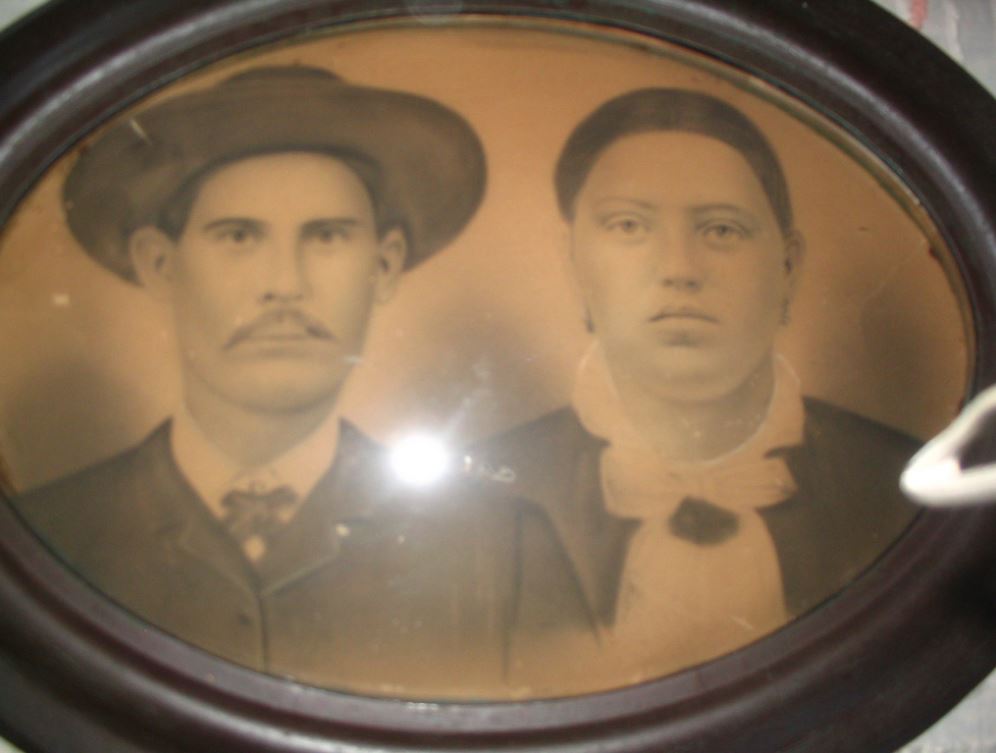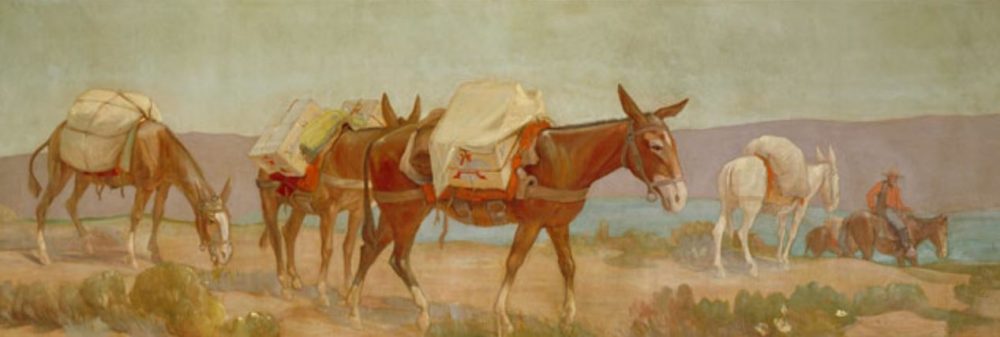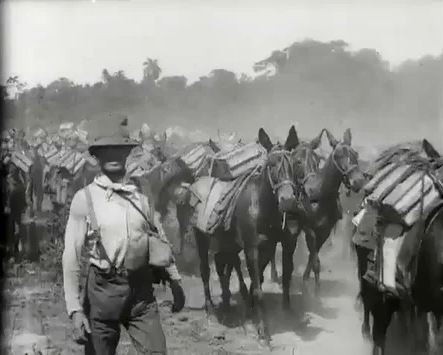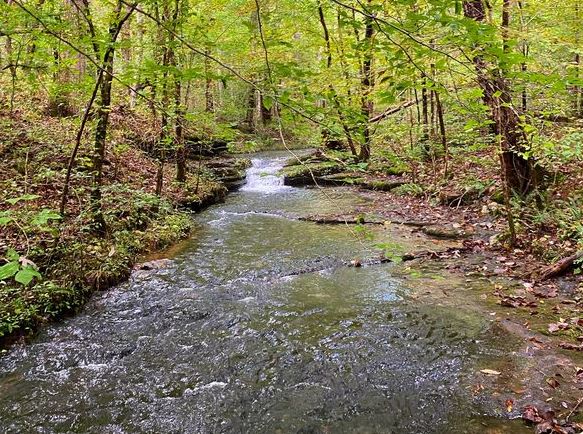Usually, this time of year, around Decoration Day, I write an article about families connected to Haynes Cemetery. This year I’m featuring an article written by someone else – an anonymous writer for the long-defunct Columbia, Tennessee newspaper, The Herald and Mail.
Haynes Cemetery is located on Scribner’s Mill Road and, this year, I’m sharing a story about a member of the family for which the road is named.
The Lewis Scribner family came to Maury County from Wake County, North Carolina around 1806. They settled on Fountain Creek and shortly thereafter John Scribner, one of Lewis’s sons, built the mill — a concern still going strong into John’s old age when, in 1873, the Columbia Herald reported the following:
…the Scribner mill, on Fountain Creek, has been renovated and supplied with new machineiy, and the proprietor is making an excellent article of flour and at the same time, a very fine yield per bushel. And as the mill is now supplied with a number one Turbin wheel it will be able to do a very large amount of grinding, during the low water season. The erection oi a new and excellent steam saw mill near Campbell’s Station, by MeBsrs. McDonald & Walker, is worthy of note. Not only do these mills give employment to a number of laborers, but they also create a market, for all surplus timber from our land owners; and since the demand for lumber, from the Northern cities has become active, these mills are bringing a large amount of money from abroad, in circulation here and; thereby adding greatly to the financial abilities of our people.
John was 79 years old when he passed away in 1877, having been married twice — to Nancy Ann Noles, and to Rebecca Aydelott — siring six children with each. He, along with more than 25 members of his family, are interred at the Scribner’s Mill Cemetery, just down the road from Haynes.
While doing research on the family, I ran across this interesting tale involving one of John’s sons, Colonel James N. Scribner (1821-1905), an enterprising “farmer and stock grower” who left Fountain Creek to live in Hampshire.
This is an excerpt from The Herald and Mail, May 29, 1874:
Pack Mules at Hampshire.
Some time in the early part of last winter I was in Bluff City [Memphis, Tennessee], where I met with J. N. Scribner, and being well acquainted and particular friends, I enquired what had brought him to the city.
He said as long as he was started, and two hundred miles from home, he would tell me, but he had not intimated his business to any person except business partner, John C. Briggs. He then told me he was on his way to the city of Idaho for the purpose of purchasing pack mules for the purpose of conveying freight from the McClanahan Hill [near Hampshire, Tennessee] to the termination of the Columbia and Hampshire Turnpike; that the road was extremely muddy, and that the wagoners charged at least two prices for hauling and he believed that he and Briggs could make money and convey the freight for one-half the present rates. I told him that I thought it would be a bad investment; that mules raised so far west would not do well here, that a great many of them would die before they would become acclimated; and then in the summer season when the roads became good they would be useless stock.
He said they had made arrangements with the firm of Ward, Rains, & Co., to take all their pig iron to Nashville at $9 per ton, and they could realize ten or twelve thousand dollars during the summer season; and the mules would be no expense, neither in shoeing nor forage; that they lived entirely on grass in the summer and shrubs in winter, and he was perfectly satisfied that they could pay for their mules, and clear ten thousand dollars per year, if they could obtain trained mules, and drivers from Mexico that understood their business.
I told him I knew nothing about the mules or the trade in the western market. And J. N. Scribner, Esq., went his way across the Mississippi river rejoicing.
About two months afterward, I saw Mr. Scribner in the city of Memphis, and read the following in a Little Rock (Ark.) paper:
Col. Scribner and General Briggs passed through here on last Friday, with a train of about one hundred pack mules, from the city of Idaho. The mules were all greys, and none under sixteen hands high. They were driven by practiced Mexicans, hired by these gentlemen for that purpose. They took two hundred bales of cotton from this to Memphis at $2.25 per bale, and Col. Scribner said that they could make 150 miles in four days. These gents, we are told, are from Middle Tennessee, and are engaged in the manufacture of iron on a large scale; the firm* is said to be worth in real estate alone at least, two hundred thousand dollars.
[* editor’s note: I believe this refers to the Napier Furnace, not Scribner & Briggs]
The next thing I hear of the mules is in a Memphis paper, which says:
About one hundred pack mules from Little Rock landed here yesterday with two hundred bales of cotton from that place. The mules were in fine condition. and had traveled through in four days with their burden. They crossed the river (by swimming) and took from the warehouse three hundred barrels of whiskey. for which they were to have $2.00 per barrel, to be delivered in Bolivar in forty-two hours.
We hear no more of them until I find in the Idaho News the following :
Clifton, Tennessee, Jan. 4th, 1874. Messrs. Raco A Co. : Please find enclosed check for $500, balance on payment for mules. We are in fifty or sixty miles of home, and have made fourteen hundred dollars on the way. We have had fine luck, except one mule got his fore leg broken swimming the Mississippi river, but we made another mule pack him three or four days, and he is now about well. We are of opinion that our investment will be a paying one.
Truly and respectfully,
“SCRIBNER & BRIGGS.”
From the Waynesboro News:
A long line of mules passed through this place to-day, said to be one hundred and fifty, two white men and four Mexicans driving. They were loaded with three hundred barrels of salt for Napier’s Furnace. We did not learn the names of the owners.
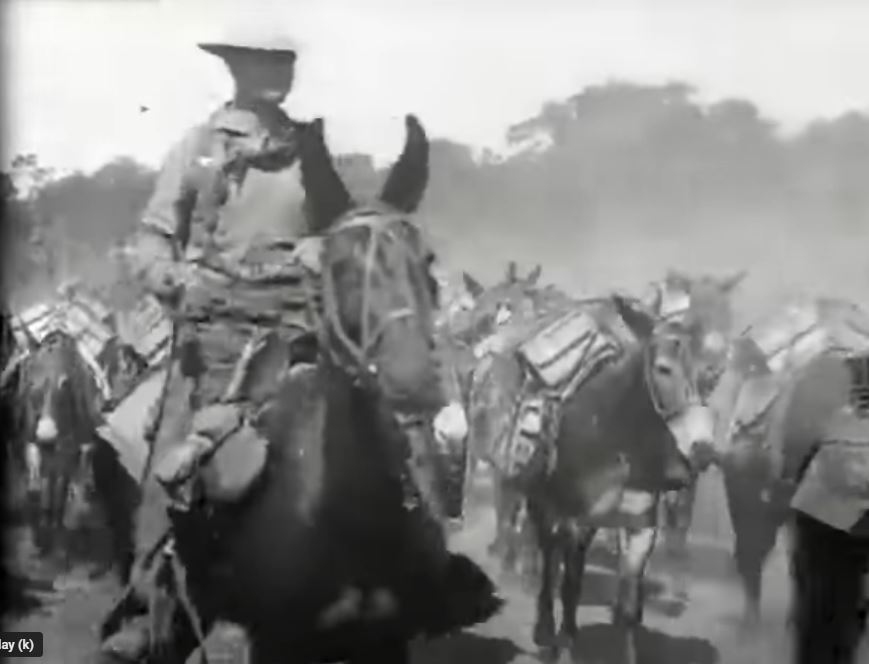
From the Furnace Watchman:
Scribner & Briggs arrived at Napier’s Furnace to-day with three hundred barrels of salt on their pack mules. They leave in the morning for Columbia, with thirty-five tons of pig iron. They do not expect to be back to this place until about the first of June, at which time they commence regular trips to Columbia, making a trip every two days.
From the Columbia Times, Jan. 9th, 1874:
The long line of pack mules belonging to Scribner & Briggs arrived here this evening from Napier’s Furnace with thirty-five tons of pig iron. They leave in the morning for McClanahan’s Hill, where they will make daily trips from that place to the terminus of the Hampshire pike.
The news of their coming to McClanahan’s spread rapidly, and when the train arrived there, about four hundred persons were on the ground, There were so many people that it took but a few minutes to load the mules all ready for a start, and just before they moved off with their freight, which consisted of peanuts, corn, cotton, fourteen hogsheads of tobacco, twenty-seven new two-horse wagons, and a considerable amount of beef cattle, amounting in all to 41 tons, Col. Scribner made them a little talk.
Among other things, he wanted all the world and the balance of mankind to know that the firm of Scribner & Briggs would convey freight cheaper than any other firm in the world. At the conclusion of Col. Scribner’s speech, Briggs was called for, upon which he came forward, (although, in this time, the train was in motion.)
General Briggs, upon seeing the mules pull out, said, “Ladies and gentlemen, on this occasion, behold the mules and Mexicans!
“I believe that is all I can say about them, as Col. Scribner has explained everything that I know. ”
Tremendous applause followed General Briggs’ brief oration and, as the six men with their one hundred mules passed through Hampshire, they looked as powerful as an army with banners, and were cheered from every door corner and house top.
We are informed that J. H. Patton, in a few minutes after they passed, offered a first-rate two-horse wagon, just finished, for $25. He said the blacksmiths and the wagoners were ruined, just by Scribner’s foolishness.
However, by a few miles down the road, in Conner’s Lane there were forty-two mules stuck fast in the mud, and before they could be relieved, nineteen perished. Scribner consoled Briggs in this way: “General, they that have must lose.”
When the remaining part reached Samuel Farriss’ spring branch, 53 mules went entirely out of sight, and the balance stampeded, but were overtaken in the lane near Mr. Garner’s. The Mexicans, in trying to relieve the mules, got into the mud; three of them, and the four Mexicans lassoed them and had tied the other end of the ropes to the fence.
The proprietors, by then, were both securely on the top of the fence, when John W. Hines came along, with two good mules going to his plow.
Col. Scribner says, “John, if you will hitch your mules to those ropes, and pull out them Mexicans, l will pay you a five note.”
Upon this offer being made, John did hitch to the Mexicans, and at the second pull brought them out, safe and sound.
Upon the Mexicans being released, with one accord they started off in a Northern direction and in one accord shouted, “Mexicana!”
Then Scribner said to Briggs, “This road is worse than I thought it was. You are a good farmer. Go home and attend to your farm, and I will go back to Hampshire and sell dry-goods, with Sam and Jack;” to all of which General Briggs said, ”Amen.”
P. S. — If you will never mention this matter to mankind or any of the human race, I can tell you where some of those mules went. As soon as Scribner returned to Hampshire and reported how the mules went at Farriss’ branch, a certain mule trader — I won’t name him — said to his friend, “Bob, we can make it now; I can find those mules,” and his friend said, “be it so,” and straightway they left, and went to a certain cave spring, where, in times of yore, there was a tan yard.
When they arrived there they saw four very fine grey mules grazing leisurely near the spring. The mule trader says to his friend, “we are in luck,” and by the time they reached the mouth of the cave, three mare mules stepped out. They remained two hours and drove off thirteen mules.
But Bob says to the mule man, “Will not Scribner know these mules?”
He says, “Bob, do you think I a fool? Can’t you spell ‘B-l-a c-k-i-n-g’?”
And they did actually drive thirteen “black” mules into Hampshire and kept them for two weeks, and the morning they started South, Col. Scribner went out and looked at the mules, and said with an elongated face and streaming eyes, “Boys if them mules were greys, I would be willing to go before Esq. McKennon and make oath they were a part of our Idaho mules.”
I am told that shoe blacking is very scarce in the vicinity of Hampshire. But don’t say a word about this, or I fear Jack would row me up Salt River.
Truly and respectfully yours,
Oneonto.
I understand that Scribner & Briggs have one pack mule and are packing freight from Newburg to Tanglefoot; so says the Herald and Mail. Success to them.


